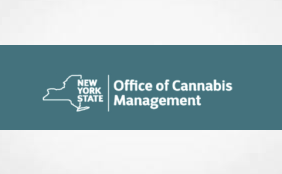In the last several years, many countries are choosing to legalise cannabis and, as the system gradually changes, we consider whether people should be pardoned for cannabis related crimes…
Legalising cannabis is a topic that is rife with debate. Over the last few years, many countries across the world have made moves to reform their drug laws, starting with cannabis.
In countries where cannabis is still illegal, there’s a huge difference in the sentences issued for possession and supply. In some countries, you’ll get off with a minor fine, and in others you’ll need a top drug offences lawyer to help you appeal years of prison time.
When countries decide to legalise marijuana, their authorities have to consider the citizens who have previously been punished for drug offences. Should these punishments still be upheld in a changed system? We explore this question, here…
Should people be pardoned for cannabis related crimes?
Many countries have chosen to legalise the recreational use of cannabis, including Canada, Malta, and many USA states, like Colorado (the first state to do so). Other countries that have followed suit include Georgia, South Africa, and Australian Capital Territory in Australia. In the Netherlands, cannabis has long been legalised for recreational consumption in licensed coffee houses.
In these countries, many people have criminal records for cannabis possession, or are even serving prison sentences for such convictions. As a result, there’s been much debate about whether these individuals should now be pardoned for their cannabis related crimes.
Naturally, it seems unjust to uphold cannabis sentences in countries where the substance is now readily available for recreational use. Many governments across the world are now taking steps to pardon individuals for these offences.
Cannabis pardons in Canada
Cannabis was legalised in Canada in 2018, meaning that the drug was permitted for recreational use across all territories and provinces for individuals aged 18 and over. When Prime Minister, Justin Trudeau, introduced The Cannabis Act, the goals of the act included protecting public health, ensuring that criminals no longer profited, and preventing youth from accessing the drug.
Before the drug was legalised, thousands of people were serving sentences for minor cannabis related crimes, and these sentences had a severe impact on their lives. The cannabis sector currently makes over $8 billion for the economy in Canada, yet the foundations of the economy were developed by individuals who are still incarcerated.
Due to this, many feel that there is a convincing moral argument to pardon such crimes. The Canadian government agree that those who were previously convicted for cannabis related crimes should be pardoned.
The government have implemented a program to excuse cannabis related crimes, however, there have been some criticisms of the scheme. One of the main criticisms is the low number of pardons that have been granted. Statistics show that under 1,000 individuals have received a pardon in the three years since cannabis was legalised.
Some argue that program is not helping those individuals who have been the most affected by their cannabis related sentences. According to research from the Parliament of Canada, ‘approximately fifty thousand Canadians are still struggling with pre-legalization nonviolent cannabis possession charges, heavily limiting their abilities to find employment, housing, volunteer or travel.’
Back in 2019, the government attempted to make the program more accessible by removing the application fee and reducing the waiting periods. Regardless, many believe that the current program just isn’t effective enough.
Cannabis Pardons in the USA
Joe Biden repeatedly promised that, if he was elected, he would ensure that everyone serving time in prison for cannabis related crimes would be released. Since Biden has been in power, we’re yet to see the mass pardoning that was promised, yet some progress has been made.
In April 2022, Biden issued ‘75 prison sentence communications’ and three pardons to individuals with cannabis convictions. In a related statement, Joe Biden said, ‘America is a nation of laws and second chances, redemption, and rehabilitation.’
Cannabis was first legalised for recreational use in Colorado, back in 2012. In the ten years to follow, a further 18 states chose to legalise cannabis, including California, Alaska, and Washington. Since so many states have chosen to make marijuana legal, pardoning people who have been punished for these crimes seems both valid and equitable.
There are many reasons why people should be excused for marijuana related crimes. Research from NORML shows that African Americans are arrested for cannabis related crimes at almost ‘four times the rate of white people’, regardless of the fact that both ethnicities consume approximately the same amount of cannabis.
There have long been examples of racial inequality in the justice system, particularly when it comes to drug-related crimes. Attempting to undo some of these injustices makes a compelling argument for pardoning people convicted for marijuana crimes.
The London Drugs Commission
It was recently announced that London Mayor, Sadiq Khan, is launching a commission to review the effectiveness of policing and UK drug legislation, focusing on marijuana. Statistics show that the UK public are strongly in favour of cannabis reforms, particularly in London. As part of the London Drugs Commission, a panel of specialists in politics, public health and criminal justice will meet to discuss drugs policies.
While many have commented that Sadiq Khan doesn’t have the power to decriminalise cannabis, his influence could potentially change policing in London. It could mean that, in future years, those who are caught possessing the drug don’t end up with a criminal record.
Research from Release.org shows that 222,000 people in England and Wales have been prosecuted for possession of cannabis in the last decade, and tens of thousands for supplying cannabis. Studies indicate that a huge majority of those convicted are ‘low-level suppliers’, driven by economic circumstances, and limited opportunities. Data like this is often perceived as another good motive to excuse cannabis related sentences, (particularly harsher convictions).
Cannabis reforms in Thailand
One of the most recent countries to reform their cannabis policies is Thailand. On 9th June 2022, the country made it legal to cultivate and possess cannabis. Despite these changes, it will still be forbidden to use marijuana for recreational purposes.
Instead, only cannabis with 0.2% or less of tetrahydrocannabinol will be legalised. Though it’s classified as a drug, cannabis is of course a naturally occurring plant, and over the last decade we’ve really started to see the benefits of its usage in the medical world. Cannabis has been used to improve the symptoms of various conditions, including epilepsy, Parkinson’s disease, chronic panic, anxiety and depression.
Due to the nature of these changes, it seems unlikely that there will be future pardons for those previously convicted of cannabis related crimes.
Pardoning for cannabis convictions
A growing number of people believe that many of the sentences for cannabis related offences are just too harsh for this non- violent crime. Some of the countries with the harshest punishments for cannabis possession include Brunei (up to 30 years in prison), and the Philippines where possession can carry a life sentence. Marijuana possession in Japan can equal 5-7 years, and up to 14 years in Indonesia.
However, not every country is sticking to these laws. These days, more and more countries are beginning to reform their cannabis laws, and governments across the world must reflect on the punishments previously served, and consider pardoning these in the name of social justice and change.
Research shows us that people of colour are more likely to be stopped, searched and convicted of these crimes, so it’s vital that authorities deeply consider racial disparity, when reviewing these laws, issuing pardons and advocating for justice.
While many of the current programs to pardon cannabis related crimes have somewhat fallen short, countries such as the USA and Canada plan to make improvements ongoing.

















